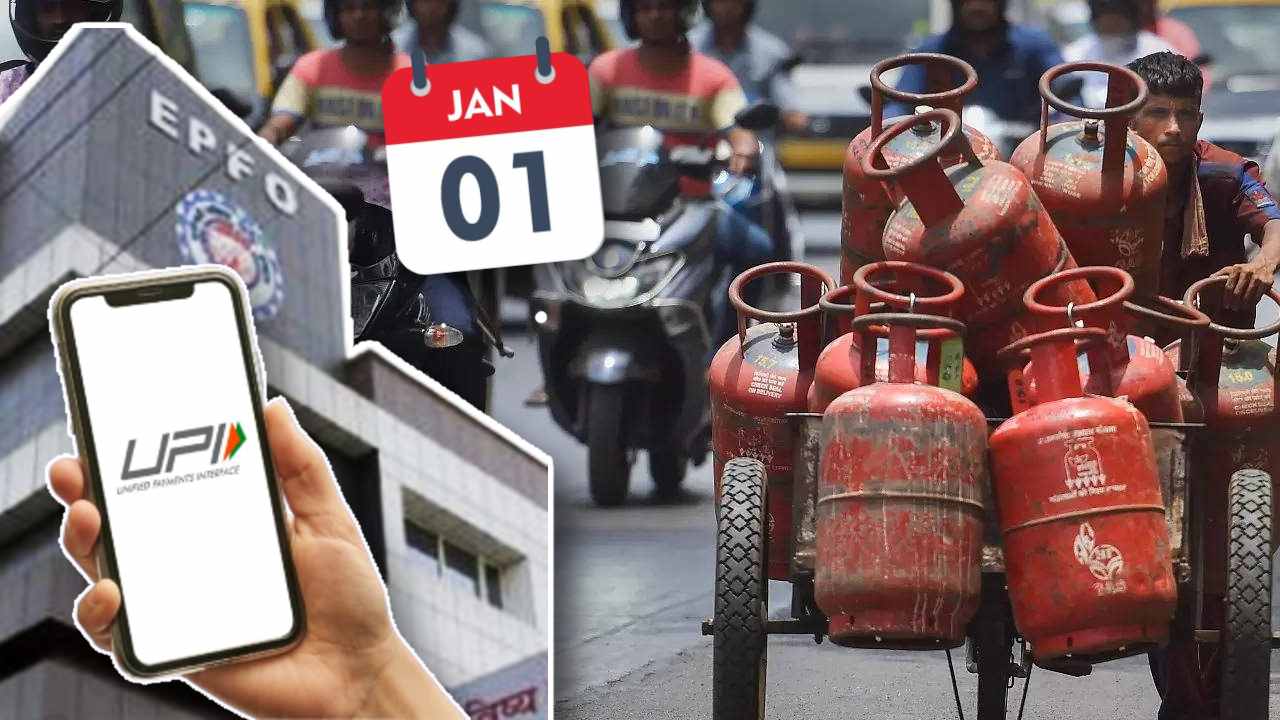As the clock strikes midnight on January 1, 2025, India will usher in a series of significant rule changes that will impact various aspects of daily life for its citizens. These changes, ranging from adjustments in LPG prices to modifications in pension withdrawal rules, are set to reshape personal finance and consumer behavior across the country. Here’s a detailed look at what to expect as the new year begins.
Changes in LPG Prices
One of the most anticipated changes is in the pricing of LPG cylinders. Oil companies typically revise LPG prices on the first of each month, and while domestic cylinder prices have remained stable for several months, commercial cylinder prices have fluctuated. It is expected that there will be a revision in prices on January 1, 2025, potentially affecting household budgets.
Simplified Pension Withdrawal Rules
In a move to provide relief to pensioners, the Employees’ Provident Fund Organization (EPFO) has simplified the rules for withdrawing pension funds. Starting January 1, 2025, pensioners will be able to withdraw their funds from any bank without needing additional verification. This change aims to streamline access to pension funds and enhance convenience for retirees.
Updates to Amazon Prime Membership
From January 1, 2025, Amazon will implement new rules regarding its Prime membership. Under the updated policy, a single Prime account will only allow streaming on two devices simultaneously. Users wishing to stream on additional devices will need to purchase extra subscriptions, a shift from the previous allowance of five devices.
Fixed Deposit Regulations
The Reserve Bank of India (RBI) has introduced new regulations concerning fixed deposits for non-banking financial companies (NBFCs) and housing finance companies (HFCs). Effective January 1, these regulations aim to enhance deposit security by mandating certain provisions such as maintaining liquid assets and ensuring deposit insurance coverage.
Increased UPI Transaction Limits
For users of feature phones, the UPI 123Pay service will see an increase in transaction limits from ₹5,000 to ₹10,000 starting January 1, 2025. This enhancement is designed to facilitate easier transactions for users relying on basic mobile technology.
Rise in Car Prices
For those considering purchasing a new vehicle, it’s important to note that major automakers like Maruti Suzuki, Hyundai, Mahindra, and BMW are set to increase car prices by up to 3% starting January 1. This price hike is attributed to rising production costs and may impact buyers looking for new cars in the coming year.
Conclusion
As India steps into 2025, these rule changes signify a shift that could affect financial planning and consumer choices for many citizens. Staying informed about these updates is crucial for adapting to the evolving landscape of regulations and market conditions.
Disclaimer: This article is intended for informational purposes only and does not constitute financial or legal advice. Readers are encouraged to consult with relevant professionals regarding specific inquiries related to these rule changes.










